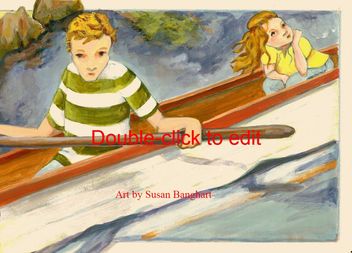 Before readers launch into a literary journey and spend hours and hours reading a story, they must be charmed or fascinated by the protagonist. It helps if the character is funny or feisty. Everyone likes feisty. Feisty faces the world with chin up and eyes blazing. Readers can't wait to see what that character gets up to and they believe whatever she faces, she'll be up to the task. It's tougher to start a story with a protagonist who's downhearted and pessimistic. In her excellent book The Magic Words: Writing Great Books for Children and Young Adults, Cheryl Klein likens the experience to listening to a negative person at a party who goes on and on about their bad luck and how it never changes. Who wants to spend time with that person? She says negative, defeated characters are unappealing. If you start a story with a protagonist who's downhearted, it's vitally important to show they're resilience and assertiveness. Immediately! And humor counts double in this story. So, guess who starts every book with a dispirited, passive person? Yep, that would be me. My muse NEVER imagines characters who wake up on the right side of the bed with a sword drawn to vanquish their enemies. In my critique group The Skyway Writers, my critique partners know I always want their eyes searching for the passages where my character lacks assertiveness. They help me see when she's reacting instead of acting, passive instead of active, finding problems instead of solutions and embracing defeat instead of believing in victory. I think most writers tend to pen protagonists with personalities that echo their own. If you're not a witty and daring optimist, that doesn't mean you can't create appealing characters. You just have to dig deeper, find the parts of you that believe in miracles and have the courage to overcome the most dreadful events. Write the character you hope to become!
0 Comments
 For Christmas, Teddie, the much adored leader of my critique group, The Skyway Writers, gave each member a beautiful, red-beaded bracelet. Now, I wear it every time I write. It makes me feel connected to my talented peers as I sit at my lonely desk, trying to find the right words to tell a story only I can tell. I love starting the year with a positive new tradition. I announced at the end of last month that I planned to steer this blog in a new direction. My focus will be encouraging teen readers, writers and artists. There's no better way to start than by celebrating great books. This week, one of my favorite authors, Kate DiCamillo, won the John Newbery award for the second time with her latest book, Flora and Ulysses. Have you read it? I haven't and I'm eager to get my hands on it. I've loved all her other books so I know what to expect. That's the thing about favorite authors. They don't disappoint. 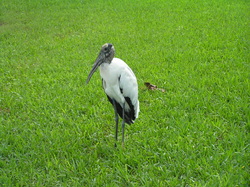 This week, I finished the third draft of my novel, the one I hoped to pass on to readers. But the pile of notes I jotted during that revision demand a fourth attempt. So I've outlined by chapter the additions and changes and next week, I'll attack Draft #4. Writing a book can seem like an endless project. When I've described the process to non-writer friends, they gawk at me and say things like, "Why would anyone go to all that trouble?" Which, believe me, I've asked myself a time or two. Even if your loved ones are supportive, they probably don't understand the passion (some would say madness) that leads us to toil for eons on a story. So, it's best to share writerly moments with people who can relate. The writers in my circle are always willing to lift their heads from their work to encourage and advise. And keep me grounded. Even if I can't see the end of this process, I trust their promise that it does have an end. Books on craft are also a comfort and fuel while I revise. They stimulate the brain and, I hope, affect the revision in a positive way. Recently, I read Donald Maass' The Fire in Fiction. Maass is the president of Donald Maass Literary Agency and the author of Writing the Breakout Novel. In the last chapter of The Fire in Fiction, he addresses what he feels is the lack in most people's writing. Maass writes: Where so many manuscripts go wrong is that, if they do not outright imitate, they at least do not go far enough in mining the author's experience for what is distinctive and personal. That was an eye-opening bit of wisdom. I've joined in discussions about bad writing practices in successful, sometimes award-winning books. We struggle to erase excess adverbs and adjectives, passive voice, telling, etc. from our manuscripts, then pick up the latest publishing darling and gasp at the undisciplined writing. It can be downright discouraging. Some might even see it as an excuse to ignore the experts' list of no-nos. Indeed, after reading truckloads of submissions in his career, Maass suggests the key to a good story is not following all the literary rules, but being as honestly unique as you can. Filter your story through the treasure of memories in your head. Make it a story only you can tell because only you know how you would experience it. I believe that's what agents and editors mean when they say they're looking for fresh voices. And as a reader, I agree with him. If I'm swept up in a story, I don't notice how it's written. I don't think Maass is saying we should stop improving our craft. The creative people I know never tire of learning new ways to improve their work. Writing a novel, for most of us, is a slow process. It requires patience and perseverance, qualities I hope to spend the rest of my life practicing. And next week as I revise, I'm reminded by Maass to leave my individual stamp on the story. Photo credit: David Banghart 2013 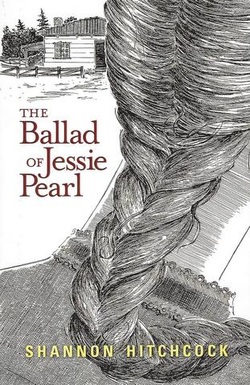 "Jessie has a choice to make Wondering 'bout which road to take Jessie has a choice to make Will Jessie Pearl be a lonely girl?" So reads a stanza from the ballad gifted to fourteen-year-old Jessie by her sister. Shannon Hitchcock's debut novel, The Ballad of Jessie Pearl, set in 1922, rural North Carolina presents a feisty, young heroine facing adult challenges. Jessie Pearl dreams of going to teacher's college, a dream she shared with her late mother. Jessie's sisters are all married and settled. They tease that Jessie will be wed by seventeen to her beau, J.T. But Jessie holds tight to her dream. Then her sister dies from tuberculosis after giving birth to a son. Jessie quits school to care for her nephew, cook and clean for her family. As the year passes, her affection for J.T. grows and Jessie wonders, even if she finds a way to finish her basic education, could she leave her family and J.T. for teacher's college? The ballad her sister wrote is unfinished and Jessie isn't sure how it will end. Despite the odds, will she achieve her dream? It's worth reading the book to find out. Shannon Hitchcock's southern roots shine in this book. If she appears in your area, don't miss her reading this gem with her fabulous Carolina drawl. I'm feeling pretty positive about this new year. Good things are afoot, starting this weekend with my second Writer's in Paradise conference at Eckerd College. The campus is nestled at the southern tip of Pinellas County, surrounded by beautiful, gulf waters. My best friend from high school is attending from New Mexico and we hope to channel some energy from our past. Novelist, David Yoo is leading the young adult workshops which will take up my mornings for the next eight days. During lunch breaks, my friend (who is doing the nonfiction track) and I plan to find a sunny spot near the water, picnic and compare notes. In the afternoons, we'll attend presentations by the illustrious: Dennis Lehanne, Ann Patchett, Andre Dubus and more. I can't wait!
In the fall, I was thrilled to be accepted into a fantatsic, critique group of middle grade and young adult novelists. At first, I fretted over the drive and time commitment. The group is based in the county south of mine with two members living in the county south of that. They alternate meetings between the two counties, one every other week. Critique days, I'm on the road for almost three hours. Add that to four hours of critique and the day is almost gone. But after two meetings, I knew the time and drive were justified by the rewards. These talented authors have encouraged my efforts and offered superior, critical feedback. On top of that, I get to read and learn from their stellar chapters! I'm still pinching myself. For the last three years, I've hoped to find a group of this caliber and had almost given up. When I did find it, I worried about fitting in. I'm the least experienced writer by far. They not only make me feel welcome but have graciously shown respect for my feedback and work. Three of my new critique partners are attending the SCBWI conference in Miami this weekend. I'm looking forward to hearing about their experience and sharing my notes from Eckerd at our next meeting. If you aren't a member of a critique group, the new year is a good time to look for one. Writers need support and agents and editors will thank you for work screened by your peers. If you've been searching for a group and haven't found the right fit, don't give up! Keep perfecting your craft and gather where other writers gather. Speaking of gathering, January is a good time to check out the year's writers' conferences and workshops. Our skills are never too sharp and they're great places to network. Many critique groups started from conference friendships.  Ingredients: One Potent Teacher A cup of super organizers Nearly two dozen passionate writers Magic Beans Directions: Mix well in a cozy Panera's room; season with a spicy lunchtime presentation and two bean ceremonies. Sprinkle with goodies. Saturday before last, I was privileged to participate in my second Joyce Sweeney workshop. Joyce is the author of fourteen young adult books, plus short stories and poetry. Fifteen years ago, she began blessing Florida writers by sharing her knowledge through classes and workshops. This past April, she came to Tampa Bay for the first time to teach a character workshop. Many of the people from that workshop attended the recent event so we had already begun to bond. Then Joyce spread a fairy godmother spell on the room, transforming us to entranced children in the best kind of school. Joyce focused on Voice this time. She broke it down to tone, diction, detail, imagery and syntax and she used the first pages we brought to illustrate good examples of each. As someone whose first pages have been used for examples of problems, it was gratifying to hear mine praised for strong imagery. I applaud Joyce for taking this positive approach and I sensed I wasn't the only one who appreciated it. Writers need critical feedback to grow but I'm not sure we grow from public humiliation, no matter how sensitively it's delivered. The room glowed as Joyce pointed out the strengths in the pages. The writing was fantastic and the examples goaded me to reach higher. I thought I wrote pretty good detail until I heard the description of a bus scene that provoked all five senses. Joyce asked us to explore our strengths and weaknesses. My greatest weakness is syntax. That's prompted me to pull Strunk and White off the shelf. Joyce also recommended Eats, Shoots and Leaves. During breaks, we were honored to be part of two ceremonies. Joyce presents a magic bean (from Costa Rica, don't you know!) to writers she mentors when their first book is published. The day of the workshop, she honored the thirty-seventh mentee, Shannon Hitchcock, author of The Ballad of Jessie Pearl. In turn, Rob Sanders honored Joyce's mentorship by presenting her with a can of beans (pinto, I think) and a copy of his new book, Cowboy Christmas. At lunchtime, Dr. Joan Kaywell thrilled us with a presentation about the Hipple Children's and Young Adult Literature Collection at the University of South Florida. That deserves a blog post by itself and I'll try to get to it soon. Then there were goodie bags, owl folders holding workshop material and chocolate-covered owl pretzels. It was impossible not to feel like a kid again! By the end of the day, the writers in that room had risen like a yeasty loaf of bread, stuffed with new knowledge, commraderie and appreciation for the hard work of others. Rob Sanders and his crew (you know who you are!) organized this do and it cooked like teflon. To top the day off, there were numerous drawings for books. I won Freedom Summer by Wiles and Lagarrigue. If you ever have a chance to attend a Sweeney workshop, I urge you, go! If not, you can still benefit from her mentoring through critique services at her website. I'm blessed to have a husband who loves story as much as I do. He grew up in a reading household and he keeps a book within reach at all times. He also has a flexible mind. Which is a huge asset when I need to plot story.
I like to brainstorm away from the distractions of home. We walk a couple miles every morning and story often accompanies us. It usually starts with a plot point; a snag or stall. This morning, I had reenvisioned the beginning of a YA book. I shared it with my husband and we began to fill in the empty spaces. Birds trilled, frogs croaked, and peafowl honked. We automatically waved at passersby leaving for work. Our feet carried us down the path, while our minds plotted story. We stopped briefly to check out the creek, flowing after recent rains, and again the marshy field where last week we spotted a mallard and her seven ducklings. Then our chat continued to the rhythm of our steps. The subject was apocalyptic. When I finally looked up several houses from our home, I laughed at us, the frumpy, middle-aged couple plotting the worlds' destruction on our bucolic walk. Sometimes, we brainstorm story in the car, losing track of our destination until one of us blinks at the road and announces, "We missed the turn!" At the cafe where we like to eat breakfast, I force myself to focus on the waitress until our order is served. Then story is tossed across the table, seasoning our food with plot. It's no wonder so many authors acknowlwdge their spouses and children on the inside covers of books. Family--good listeners and eager plotters--deserve credit for their part in the story. I'm back from a mini blog vacation which was prompted by the death of my computer, a not so loved, but necessary companion. Forgive me if I'm a bit rusty. And cranky. To light a fire under my muse, I perused J.K. Rowling's site yesterday afternoon.
I'm a Potter freak and even though I admire literary fiction, I don't apologize for this digression. I'm married to a sci-fi/fantasy geek who read the Harry Potter books as soon as they hit library shelves. In between he plugged his ears and eyes, so previews wouldn't contaminate his experience. I enjoyed the movies with him but I had no interest in reading the books. Until the writing bug bit me and the first novel out of my head was a middle grade fantasy. Then I studied Rowling's books cover to cover, all 4195 (U.S.) pages. I noted immediately the issues that critics scoffed at: Opening on a scene absent the protaganist or any character near the targeted reader's age (more than a century has passed since Dumbledore was a teen!), swerving point of views and all that telling/not showing. None of that mattered. By the end of page one, I was gripped by the story and remained so to the last page of book seven. How did Rowling do it? What is it about her story that struck a chord with millions, young and old? For me it starts with her characters. Harry, Ron and Hermione are relatable, likable kids. They're not super good-looking or cool and they use ordinary assets to battle evil: Knowledge, courage, and determination. Rowling infuses their dialogue with wit and humor, even during the darkest moments. After Harry and his buds tackle a troll, Rowling delivers comic relief when a flustered Professor McGonagall awards their school house ten points for "sheer dumb luck." Hogwarts' staff . . . Dumbledore, Hagrid, McGonagall and Snape are equally charming (yes, I called Snape charming!). Not only did I root for Harry and his pals, but I hoped for Snape's vindication. Because Rowling's characters are not one-sided. Snape is a complicated mixture of loyal Hogwarts' professor and former Deatheater. The wise and powerful Dumbledore puts Harry in danger and often leaves him to deal with it alone. Even the contemptuous Dudley Dursley is redeemed in the end when he shows respect and concern for Harry. Readers recognize themselves in these flawed characters and celebrate their victory over wrong. Next week: The World Rowling Built |
AuthorI write middle grade and young adult books with a magical twist, and I'm represented by the fabulous Leslie Zampetti at Open Book Literary. Writer Websites
Augusta Scattergood Maggie Stiefvater Rob Sanders Fred Koehler JC Kato Sarah Aronson Kelly Barnhill Linda Urban Kate DiCamillo Jacqueline Woodson Helpful Links SCBWI Agent Query Lorin Oberweger - Freelance Editor Search BlogArchives
May 2020
Categories
All
|
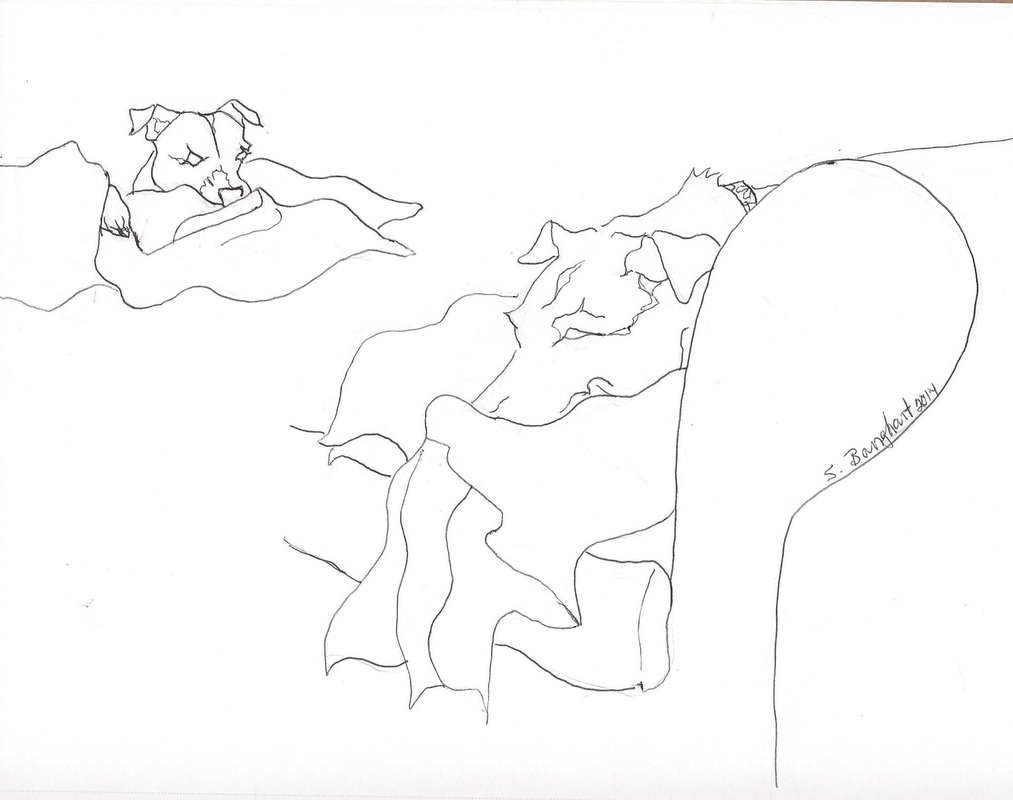


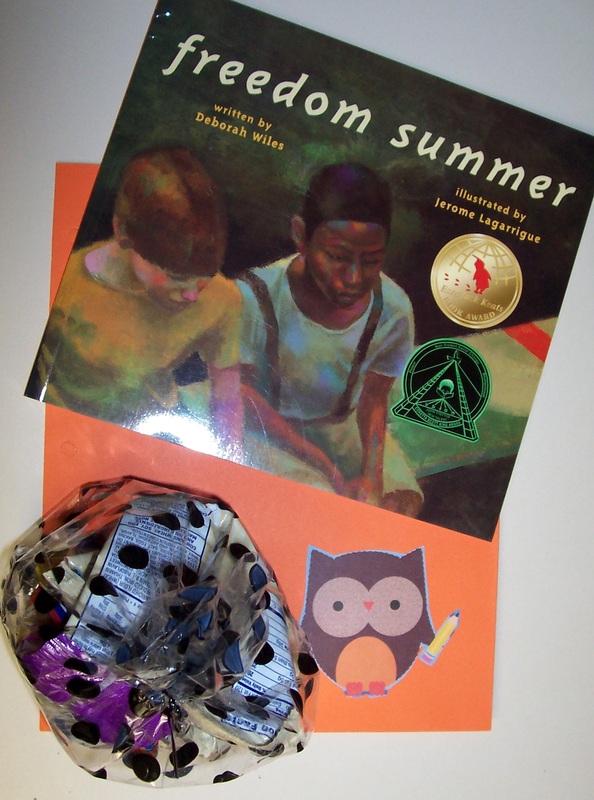
 RSS Feed
RSS Feed
